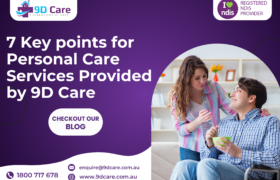- Be Your Personal Best
Warning: foreach() argument must be of type array|object, string given in /home/u637612890/domains/9dcare.com.au/public_html/wp-content/themes/9dcare-theme/inc/custom-functions.php on line 503
What is a registered NDIS provider
What does the NDIS do?
The NDIS offers financial support to eligible individuals with disabilities in Australia. It enables them to increase their quality of life by spending more quality time with their family and loved ones, gaining greater independence, accessing volunteering opportunities in their community, and acquiring new skills.
What is the difference between a Registered and Unregistered NDIS provider?
NDIS providers can be classified into two groups: registered and unregistered. Registered NDIS providers are those who have been approved by the National Disability Insurance Agency (NDIA) and are registered with the NDIS Commission in accordance with section 73E of the National Disability Insurance Scheme Act 2013.
NDIS providers who are not registered do not have any accountability to the NDIA and cannot be subject to investigation by them if they do not meet all the requirements of the scheme. Consequently, they are unable to directly engage with participants managed by the NDIA, which may restrict their growth prospects and access to a broader client base. Private or family-operated small businesses in the disability service sector are among the instances of unregistered providers.
Choosing to become a registered NDIS provider offers several advantages, including being part of a larger network and being accountable to the agency, which presents opportunities for expansion. However, it is important to acknowledge that there are certain challenges associated with this decision that should be carefully considered.
Pros and cons of a registered NDIS provider
Choosing a recognised NDIS provider is often advised since they are regarded as being more reputable and trustworthy, however both registered and unregistered providers have advantages and downsides.
Pros of a registered NDIS provider.
- Benefits of working with NDIA-managed participants include having easier access to a trusted and credible client base.
- Registered providers are perceived as more trustworthy by participants due to the NDIS’ rigorous standards, resulting in the delivery of higher quality services.
- The NDIS portal facilitates faster cash flow as payments are handled efficiently through the system.
- Registered providers may find it easier to secure financing due to the comprehensive documentation requirements associated with NDIS registration.
Cons of a registered NDIS provider.
- Stricter regulations for compliance
- If the level of service is not met, legal issues may come up.
- Additional documentation
- Higher initial start-up and recurring fees for audits and registration.
To register or not to register depends completely on the NDIS provider. However, there are business which provide certain categories need to be registered.
These support categories include:
- Coordination of supports
- Improved living arrangements (some are services that cannot be delivered)
- Improved relationships
- Improved life choices
When it comes to choosing a NDIS provider, opting for a registered one can bring numerous advantages and is often the preferred choice for individuals. Registered providers are not only held to high standards, but they are also accountable to the NDIA, meaning they must strictly adhere to guidelines and regulations. This accountability fosters trust and confidence among participants, as registered providers are viewed as more reliable and credible. They also enjoy access to a wider network of NDIA-managed participants, which opens doors to new growth opportunities and expands their potential client base. What’s more, registered providers undergo thorough assessments and must meet stringent quality standards, resulting in the delivery of higher quality services. Another benefit is that working with a registered provider streamlines the payment process, ensuring quicker cash flow through the NDIS portal. Additionally, being registered facilitates easier access to financing options, as registered providers are often better equipped to fulfil the detailed documentation requirements. Overall, hiring a registered NDIS provider offers peace of mind, reliability, and access to a range of benefits that can significantly enhance the quality of support and care received by participants, making it a choice that can positively impact lives.
The National Disability Insurance Scheme (NDIS) has substantially transformed the shape of Disability Support Services in Australia. For individuals with.
The primary goal of assistive products is to retain or improve a person’s functioning and independence, thereby promoting their well-being..
At 9D Care believes in providing unparalleled personal care through their comprehensive and innovative services. And so today, we have.
Much like the saying for postal workers that “neither snow, nor rain, nor heat, nor gloom of night stays these.
For individuals with disabilities, participating in social and community activities is not just a luxury but a necessity for maintaining.
For participants who are eligible, we highly recommend utilising NDIS plan management to assist in managing their NDIS plan funding..





